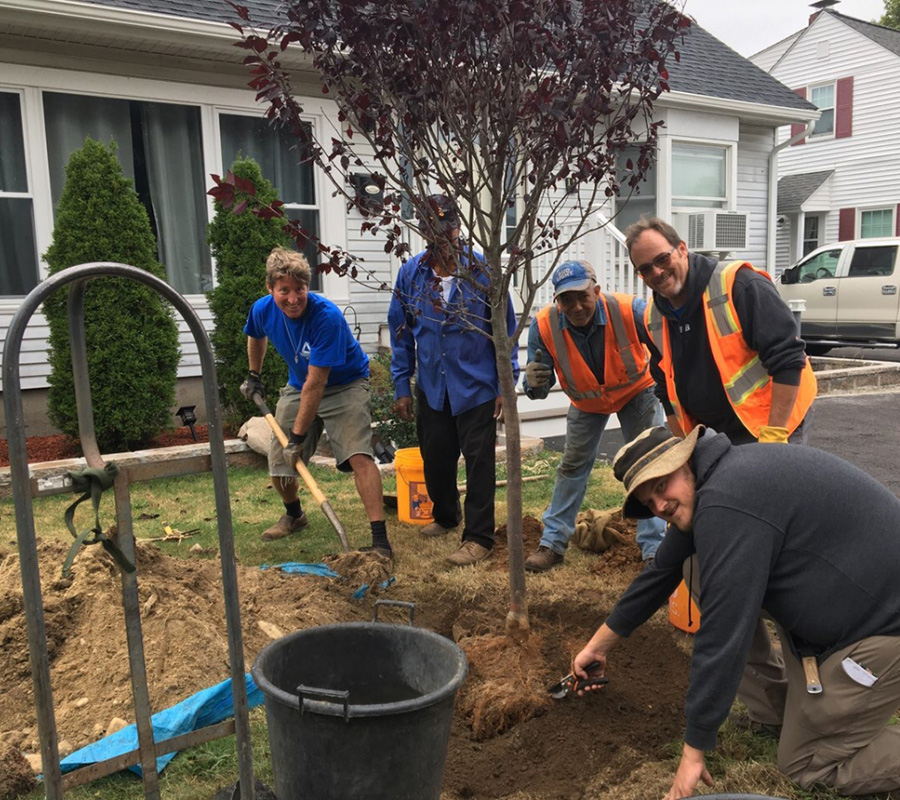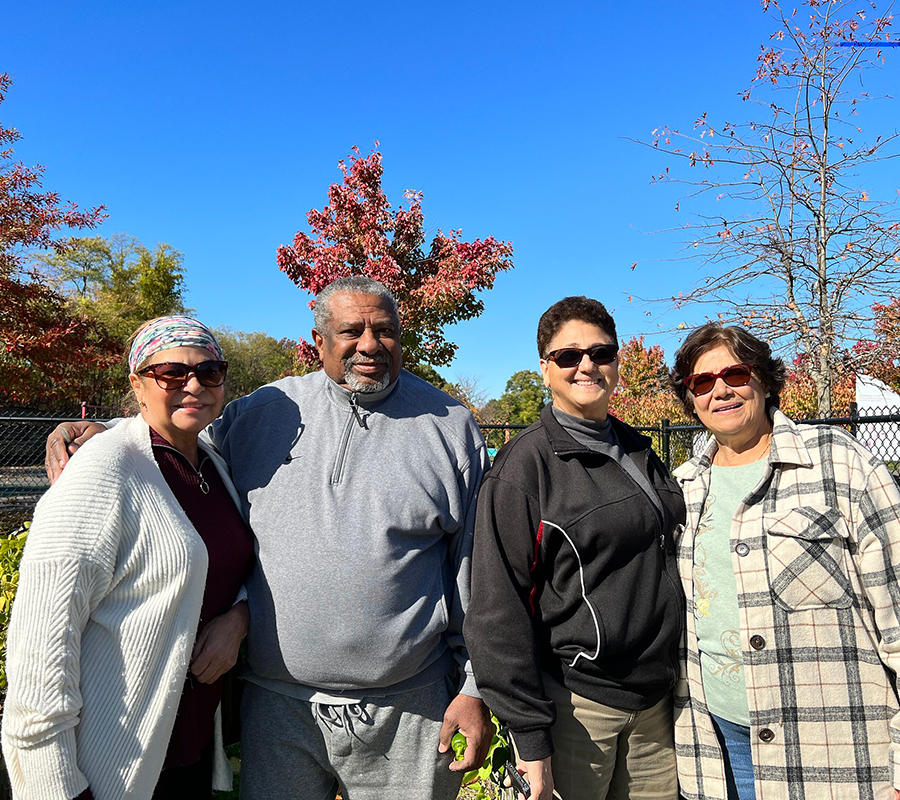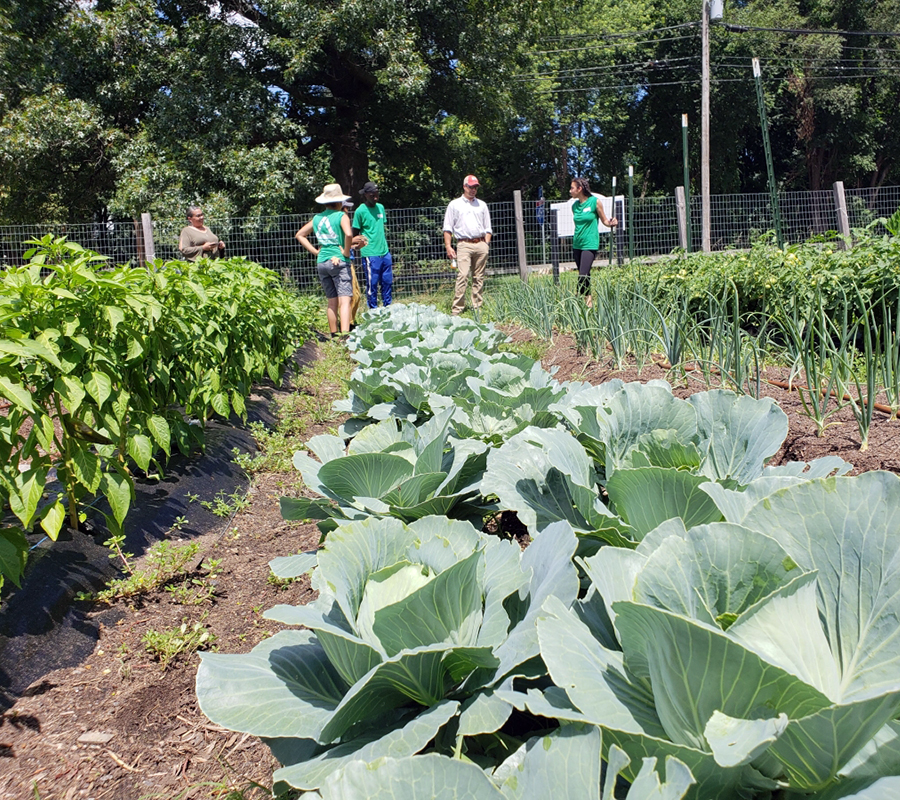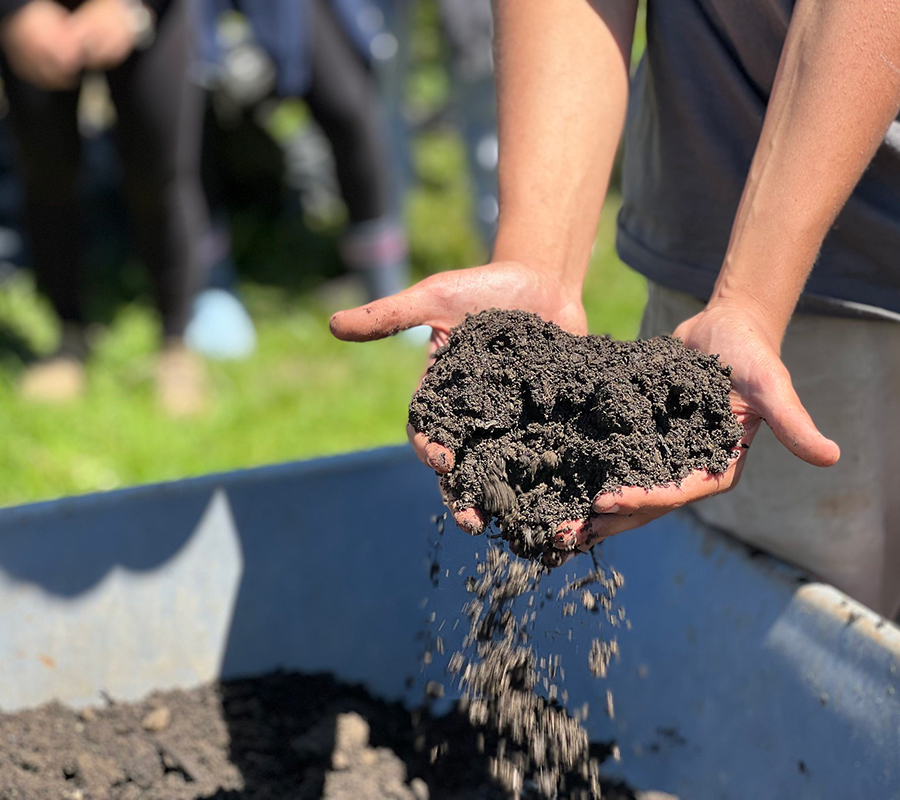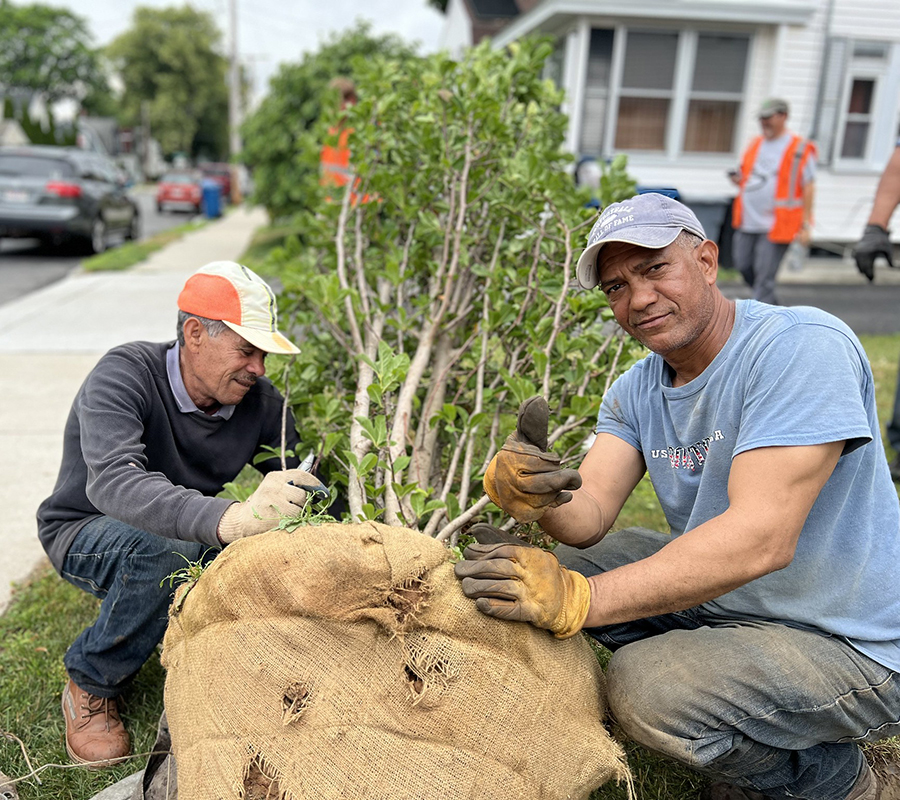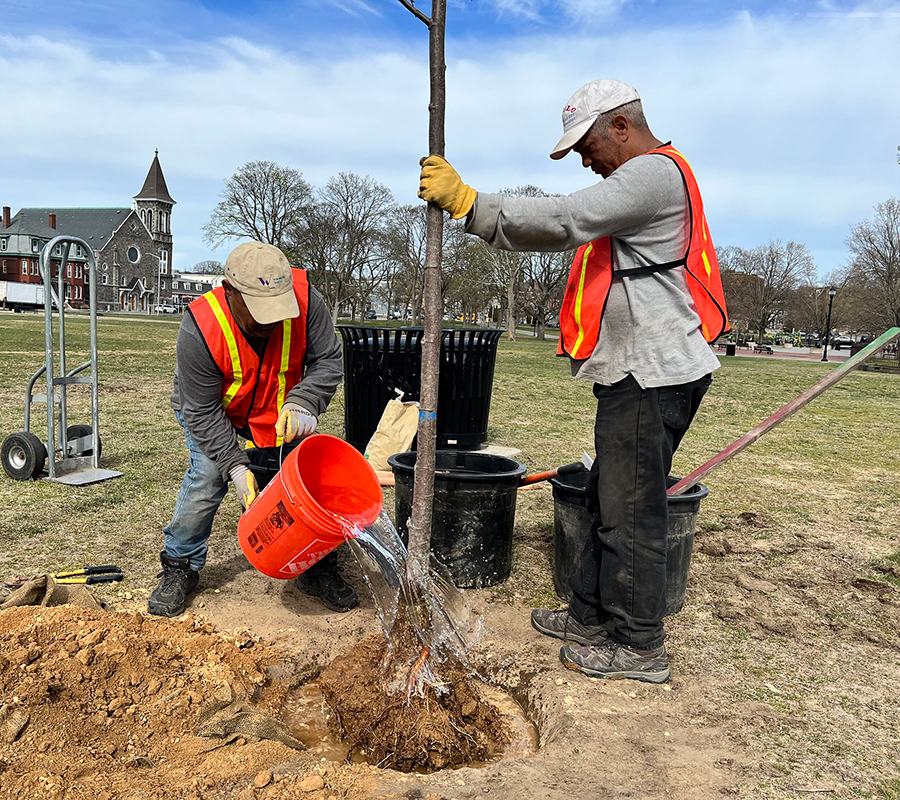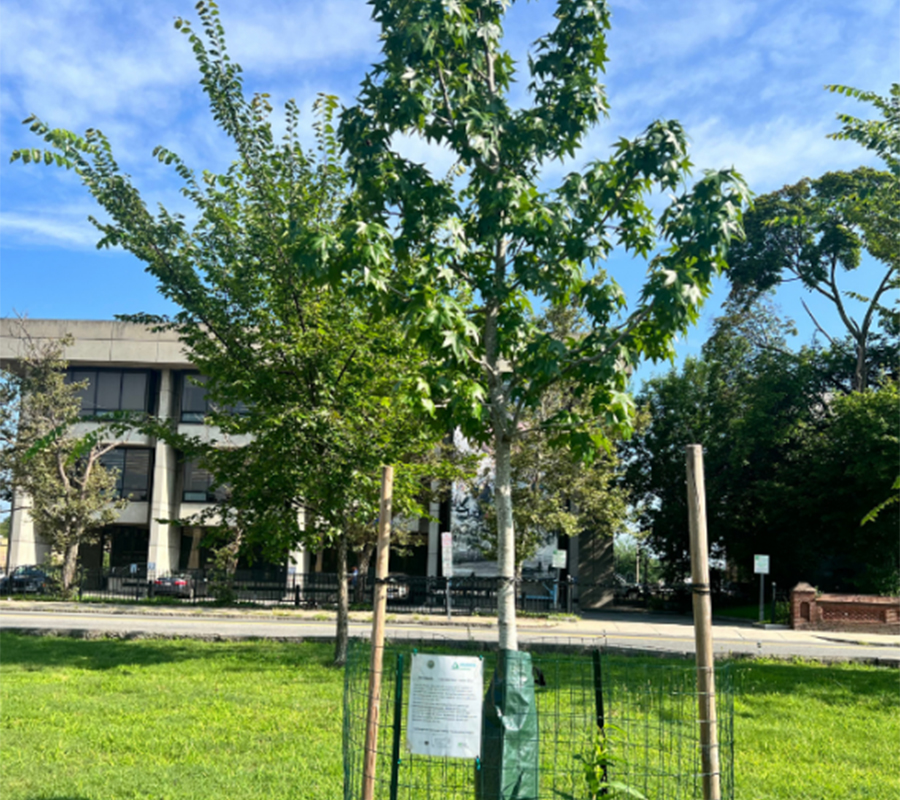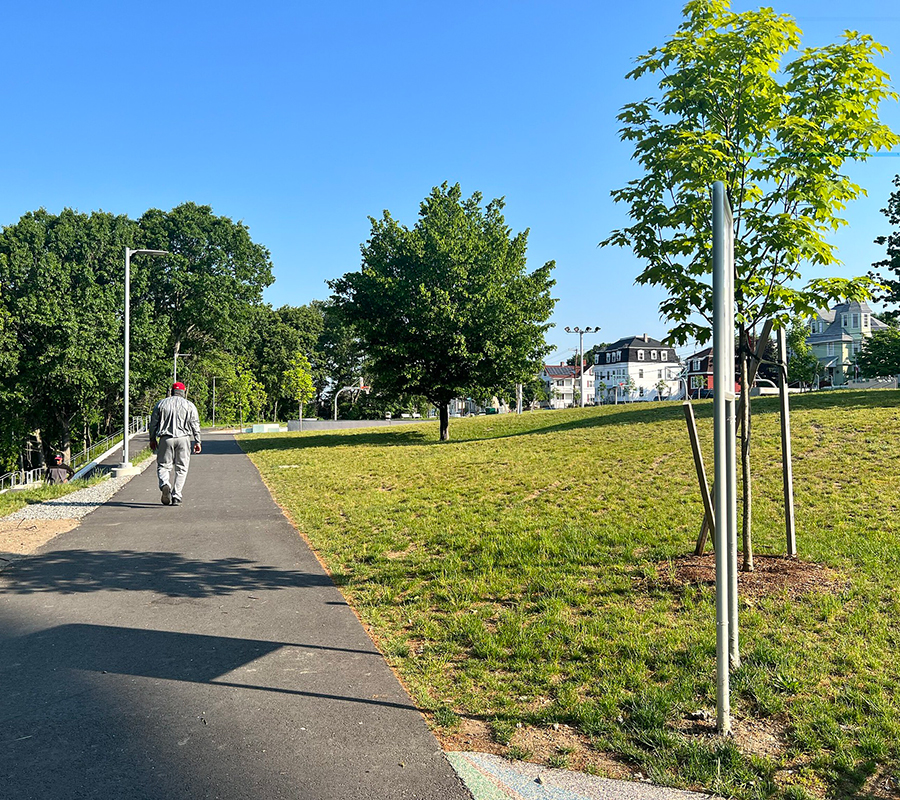Community Engagement
Climate Resilient Neighborhoods
What does race have to do with climate change? Which neighborhoods in Lawrence and Haverhill are most at risk from extreme heat and flooding? What can residents and local government do to make sure their neighborhoods are safe and resilient to climate change?
As part of Groundwork USA’s Climate Safe Neighborhoods (CSN) partnership with Groundwork Trust organizations across the country, Groundwork Lawrence is working with area residents and stakeholders to understand the relationship between Haverhill and Lawrence’s history of race-based housing segregation and the current and predicted impacts of climate change.
Climate Safe Neighborhoods
Groundwork Lawrence has spent the last twenty years working with Lawrence residents to create more climate resilient neighborhoods through a person-centered approach, committed to the ideal that change should come from resident identified needs and priorities.
Building upon our shared success achieved by organizing with residents and partnering with the City of Lawrence, nonprofits, businesses, and other stakeholders on projects like the Spicket River Greenway, Costello Urban Farm, and community gardens, Groundwork Lawrence has expanded regionally, as our rivers, neighborhoods and trails do not end at municipal borders.
Greening the Gateway Cities Program
As part of this expansion, Groundwork Lawrence has been partnering with the City of Haverhill and Massachusetts’ Department of Conservation and Recreation’s Greening the Gateway Cities program to plant trees in Haverhill’s most climate-vulnerable neighborhoods through its Green Streets program.
The Green Streets program works to increase the urban tree canopy in Lawrence by providing free trees to city residents and businesses. In 2008, we received funding from the Commonwealth’s Environmental Justice Program to pilot an urban forestry program, planting 18 trees that year. Since then, Green Streets has grown to a year-round project where, with funding from the Massachusetts Executive Office of Environmental and Energy Affairs (EEA) under their Greening the Gateway Cities (GGC), we have the ambitious goal of planting 400 trees per season. GGC works to plant trees in environmental justice neighborhoods in Massachusetts’ 26 gateway communities with the goal of mitigating climate change impacts at the neighborhood level and combating urban heat island effects, decreasing flooding through stormwater management, and improving air quality.
What is Lawrence Pa’lante?
Lawrence Pa’lante sits at the intersection between urban planning, advocacy, and community empowerment. The program seeks to create more affordable, safer, and cooler transportation options for residents that improve health, quality of life, and help increase resident’s resilience to the impacts of extreme heat.
Groundwork Lawrence is working with residents and partners to help reimagine how people move around the city. Together, we seek to create more affordable, safe, and cool transportation options for residents that improve health, and quality of life and help increase residents’ resilience to the impacts of extreme heat.
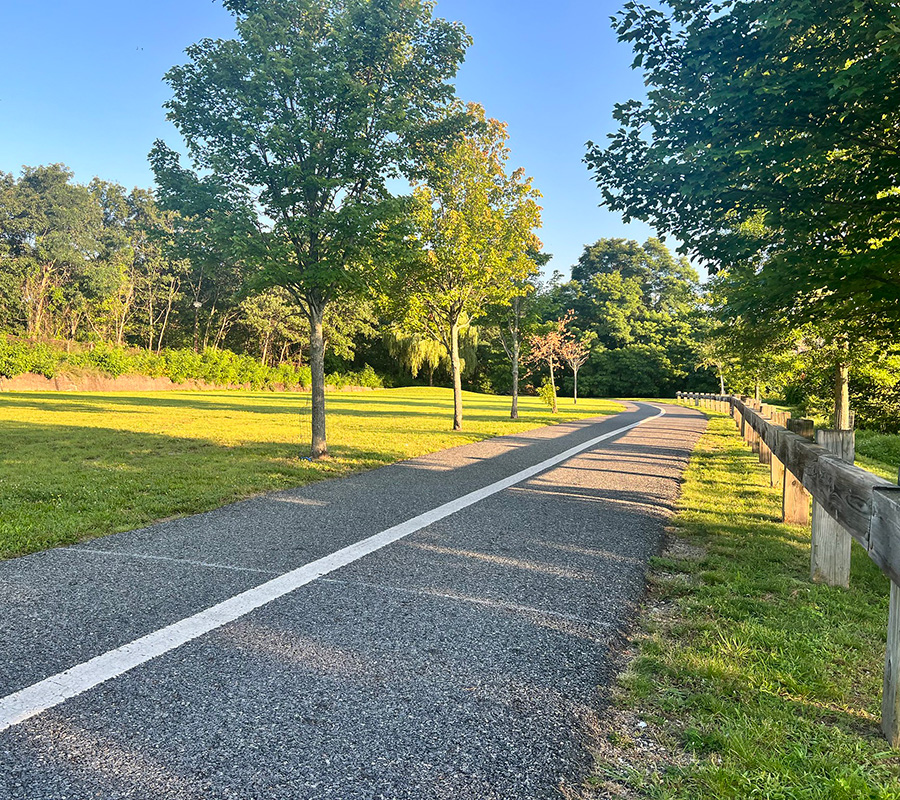
Lawrence Pa’lante will work closely with residents to address climate and health inequities. For example, creating green space and urban tree canopies provides co-benefits like shade and cooling, stormwater capture, improved air quality, and recreational opportunities. By locating elements such as these on critical and frequently traveled corridors, the project will also help address equitable distribution of resources.
Cool Islands is an identified combination of environmental elements that facilitate access and connections to core destinations in the community so that people can connect with local resources like healthy food, parks and green spaces, shade, community and health centers, and schools. At the same time, Lawrence Pa’ Lante builds a foundation of climate and community responsive measures. A Cool Island:
- Provides equitable mobility and access
- Builds a safer pedestrian and biking experience
- Promotes multi-modal transit
- Increases tree cover
- Promotes business
- Encourages the use of open space
- Decreases flood vulnerability
- Prepares for the impacts of climate change
What’s Pa’lantes Focus?
Lawrence Pa’ Lante seeks to import global best practices on health, equity, and climate resilience to supplement local knowledge and efforts. We are using ideas and lessons learned from initiatives in four global cities: Paris, London, Fortaleza, and Bologna.
- Paris’ Cool Island” Mapping Project allowed the city to share information about refuge from heat available to citizens. The success of the app led to updated features including “cool itineraries” and “cool networks,” which according to the City, has changed how citizens move through and use public space.
- London’s Healthy Streets Approach sought to create fairer, sustainable, and attractive urban space through a multi-level planning and policy approach utilizing a three-level (street, network, and strategic-level) planning framework.
- Fortaleza’s Plano de Ações Imediatas em Trânsito e Transport tackles traffic and congestion in Brazil’s fifth largest city by prioritizing mobility policies, emphasizing public transport, traffic safety measures, walking, and cycling infrastructure. By 2016, the city had the lowest number of road traffic deaths in 15 years.
- Bologna’s Urban Commons leverages the expertise of local residents to generate ideas through collaboration pacts, which streamline the approval and implementation processes. The Urban Commons approach emphasizes four key principles: (1) the city is an open resource where all people can share public space and interact, (2) the city exists for widespread collaboration and cooperation, (3) the city is generative, producing for human nourishment and human need, (4) the city is a partner in creating conditions where commons can flourish.
Pa’lante will conduct a series of community engagement activities where residents will help to generate ideas for planning and implementation.
Job Opportunity
Pa’Lante Resident Task Force (Contractor Position)
GWL is seeking someone that would like to make a difference in their community by joining Pa’Lante, a Resilient Corridors Resident Task Force. You will work collaboratively with Pa’Lante members and project staff to support community engagement, Resilient Corridor planning, and the implementation of an air quality monitoring program. The project will implement three community meetings, several in-place neighborhood-based engagement projects, and a pilot Resilient Corridor project that is created from the resident engagement activities.

